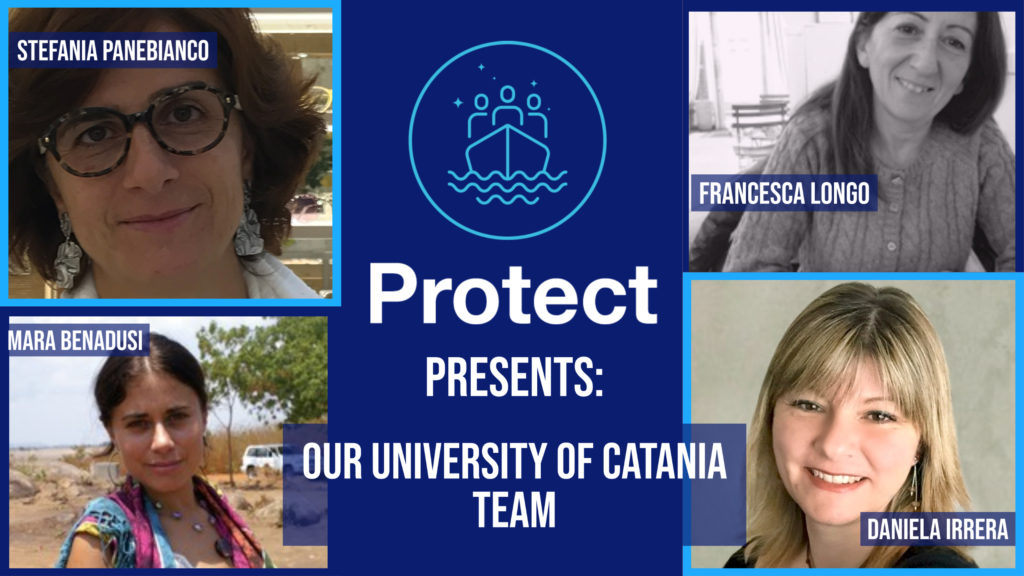The (lack of) EU Migration Policy on fire: What can be learned from the Moria disaster?
By Daniela Irrera, University of Catania
The pandemic has worsened living conditions for migrants and refugees significantly – not only in refugee camps like Moria, but everywhere in EU countries. COVID-related health emergency measures have diverted both funds and consideration – and government policies have turned more intolerant, placing migrants in a limbo, with no rights or assistance, no access to testing or health and social facilities. Masses of undocumented refugees have remained stuck in hostile environments due to mobility restrictions. Other than threatening the lives of people, especially those living in camps, the virus seems to have offered an excuse to legitimize government policies aiming at closing borders and causing exclusion.
The striking images of the fires which devastated the largest migrant camp in Greece last week have circulated across media all over the world and astonished the public.
About 13,000 people have lost their shelters, which have allowed them, although in a very uncomfortable way, to survive, far from war and violence.
On 10 September, the day after the fires, 31 NGOs signed a joint statement requesting the Greek government to provide firm actions to assist at-risk people like minors, pregnant women and those who have tested positive with COVID-19, and safely transfer them to the mainland.
The pressure to properly apply the principle of asylum and develop more solid humanitarian practices have intensified since the launch of the Global Compact on Refugees and has been further amplified by the COVID-19 pandemic.
Amongst the most vulnerable groups in society, the outbreak has caused the most suffering for migrants and refugees. The provision of shelter, food and medical assistance has become severely demanding and therefore drastically reduced.
Not only in refugee camps like Moria, but everywhere in EU countries living conditions for migrants have significantly worsened; the COVID-related health emergency measures have diverted consideration and funds. Government policies have turned more intolerant, placing migrants in a limbo, with no rights or assistance, no access to testing or health and social facilities. Masses of undocumented refugees have remained stuck in hostile environments. Other than threatening the lives of people, especially those living in camps, the virus offered an excuse to legitimise government policies aiming at closing borders and causing exclusion.
NGOs: replacing the state in times of crises
In many European countries, NGOs have successfully played the role of intermediaries. In both conflict and non-conflict environments, intermediaries can often complement and/or replace the state by providing basic goods and services.
More importantly, they advocate for the inclusion of poor and disregarded people in governmental programme. NGOs are the ones who more efficiently help vulnerable migrants and refugees to survive lockdowns by providing shelters, food packages and other basic goods. In many cases, they also cooperate with local authorities and facilitate access to tests and other necessary medical services.
Before the outbreak, NGOs have constantly been denouncing forced returns and highlighted the brutal effects of border closures. More recently, they have been focusing on urging states to protect the health and safety of vulnerable people. Their tasks are, however, becoming more difficult because of the pandemic.
Not only have public and private funds, which were previously destined to migrants and refugees, been diverted to other more urgent programmes. The imposition of lockdowns, social distancing and restrictions to mobility have already reduced various forms of social activism and affected the outcomes of deliberative processes on all levels.
In many countries, authoritarian regimes have profited from necessary restrictions to limit dissidents and imposed autocratic power.t Even in some democratic EU member states, illiberal policies have flourished and been supported in the name of public health.
In order to overcome such difficulties, NGOs have reinvented their roles and explore alternative tools for lobbying states and EU institutions. Many of them have shifted their usual work from longer-term projects to emergency relief.
Service and assistance provision is also used for monitoring abuses of power, denouncing undemocratic crisis responses and speaking out against cases of unequal medical treatments, illegitimate asylum denials, and forced returns.
Several NGOs, like Médecins Sans Frontières (MSF), have already denounced the Greek government’s lack of commitment to improve the inhumane conditions of the Moria camp and strongly requested the EU institutions to intervene to limit the worsening effects of the pandemic. Therefore, the devastation caused by fires did not surprise them, but was rather considered as the culmination of an inevitable escalation.
The support promised by the European Commissioner for home affairs, Ylva Johansson, and the measures announced by the Greek government will probably contribute to reducing the immediate effects of the disaster.
However, the lack of response and the reluctance to protect vulnerable people has already demonstrated that the EU’s inadequate migration policy hardly will be modified.
The current pandemic is offering plenty of lessons that governmental actors can learn from and turn into a series of immediate and long-term arrangements. Coordinating and enhancing the intermediation role and the potential that NGOs can express and deploy may be a good starting point.
Related content:

Meet Daniela Irrera

Daniela Irrera is Associate Professor of International Relations at the Department of Political and Social Sciences, where she serves as Erasmus Coordinator and Deputy Director for Internationalization and Research. She is Secretary General of the Italian Political Science Association (SISP) and President of the European Peace Research Association (EuPRA).
Irrera is an expert in NGOs role in refugee relief and
recently gave a talk on the changing role of NGOs during the Corona lockdown, explaining that NGOs are now playing a bigger and more innovative role in global crisis management due to the absence of active state actors. Their role in providing humanitarian aid to refugees and migrants has become increasingly important as states have been more concerned with national emergency responses to the Covid-19 pandemic than refugee relief efforts:
– NGOs have both maintained and established important roles throughout this time; as both watchdog and proactive actors – reminding states of their moral responsibility of meeting refugees’ and migrants’ needs for protection, and showing flexibility and innovation in how they themselves practice crisis management.
Photo: the University of Catania
